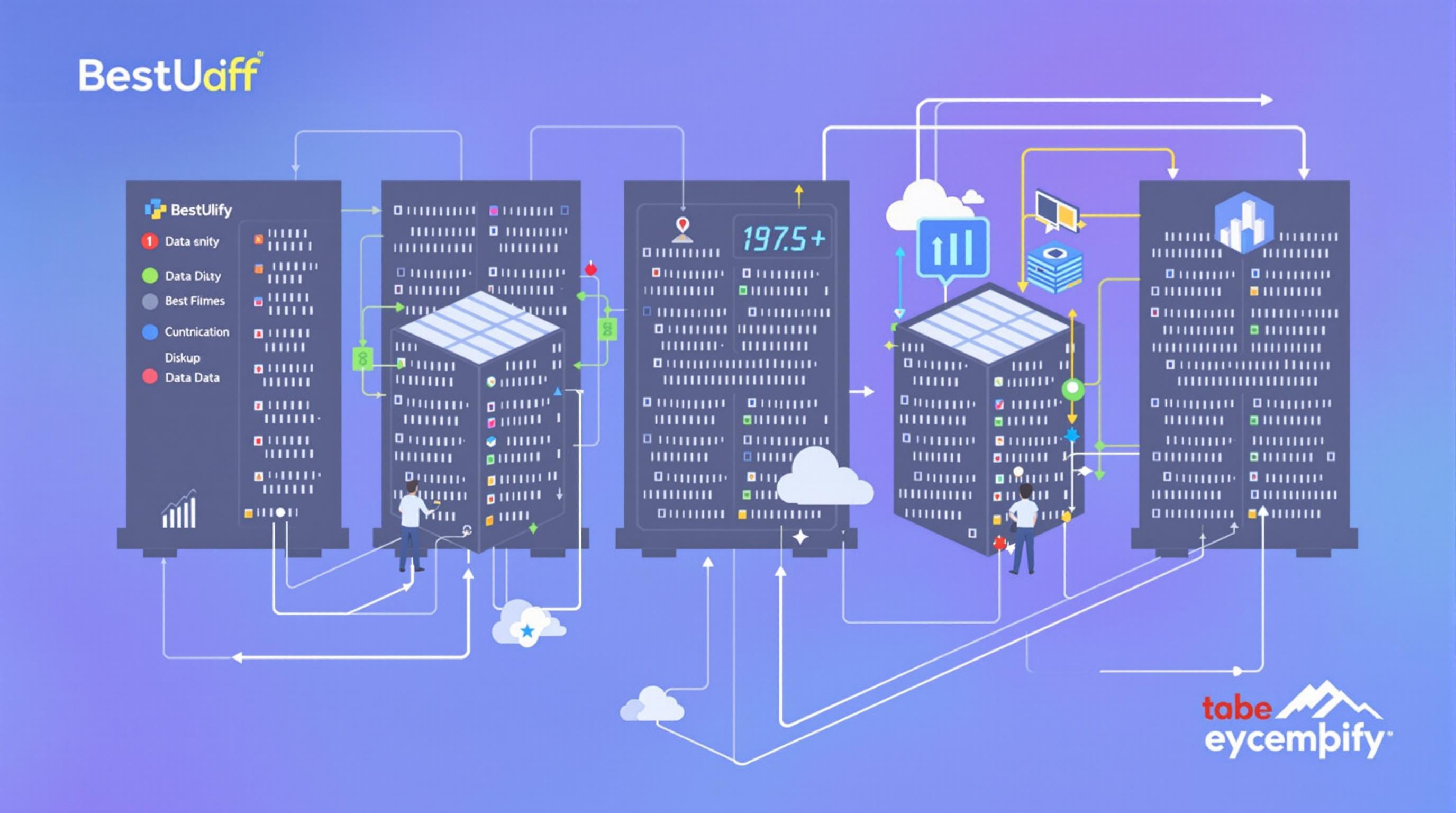Related Articles
- The Role of Quantum Encryption in Transforming Legacy Data Protection Practices for Businesses
- Top 6 AI-Powered Subscription Platforms Transforming Product Access and Affordability Since 2019
- Unseen Pitfalls: How Cognitive Overload in Finance Audits Undermines Checklist Effectiveness and Decision Quality
- The Silent Impact of Global Fiscal Shifts on Local Tax Date Practices No One’s Talking About
- How Cultural Narratives Shape Personal Budgeting: Unseen Influences Behind Financial Template Choices
- Top 6 Underrated Payment Tools Released Since 2019 Changing How Stores Handle Transactions
When Disaster Strikes: Unseen Psychological Impacts of Data Loss on Company Culture and Employee Trust
When Disaster Strikes: Unseen Psychological Impacts of Data Loss on Company Culture and Employee Trust
When companies suffer data loss disasters, the impact goes far beyond spreadsheets and backups—it cuts deep into employee morale and trust. This article explores the often overlooked psychological reverberations within corporate culture after such incidents.
The Invisible Wounds: Psychological Fallout from Data Loss
"You never realize how much you rely on data until it vanishes," said Jenny Clarke, a project manager at a mid-sized tech firm that experienced a ransomware attack in 2022. While the immediate focus naturally tends to be on IT recovery and business continuity, the emotional consequences for staff can be profound.
Research from the Journal of Occupational Health Psychology (2023) indicates that employees affected by abrupt data loss often report elevated stress levels, feelings of helplessness, and diminished workplace confidence that persist for months after the event.
Trust: The Fragile Glue of Company Culture
When sensitive company data disappears, employees frequently question leadership’s competence, which can kindle skepticism about decision-making processes. A 2021 PwC survey found that 58% of workers said their trust in management dropped significantly following cybersecurity incidents that led to data loss.
These doubts ripple through teams, breeding a culture of caution and disengagement that ultimately stymies innovation and collaboration.
Case Study: The Cascading Effects at MacroCorp
Take MacroCorp, a global manufacturing giant that in 2019 lost critical customer data after a cyber breach. Beyond the immediate financial toll — estimated at $12 million — the company grappled with deteriorating internal relationships. Employees reported coworkers avoiding discussions about data-related issues, and many hesitated to volunteer for projects out of fear of error or blame.
Senior HR executive Renee Montgomery notes, "The breach didn't just expose our data, it exposed the cracks in our corporate culture."
More Than Tech: The Human Side of Data Loss
From my perspective as a 52-year-old journalist who’s covered disasters ranging from natural calamities to digital crises, I’ve learned that companies seldom prepare their people for psychological recovery after a data loss event.
The “fix-it” mentality dominates — secure the servers, pay the ransom, restore backups — but emotional recovery lingers unaddressed. This oversight worsens turnover rates and can lead to chronic absenteeism.
How Anxiety Manifests at Work
Employees may develop anxiety over repeated errors, fearing another data mishap. This anxiety, if unmitigated, cultivates a blame culture, discouraging openness—contrary to the transparency required to prevent future crises.
Stat Spotlight
A survey by Cybersecurity Ventures in 2022 noted that 45% of employees whose companies suffered data incidents reported a drop in job satisfaction, and 33% considered changing employers.
A Lighthearted Look: When Excel Spreadsheets Go Rogue
Let’s not ignore the amusing anecdote: at one small startup, an intern accidentally deleted all sales forecasts just hours before a board meeting. The team joked that "Excel finally got tired of our numbers," turning the disaster into a team bonding moment. This humor became a coping mechanism, letting staff acknowledge the mistake without anxiety overpowering the moment.
Such levity, when genuine, can ease tension and restore morale—key elements often missing during severe data loss crises.
Persuasive Call to Action: Invest in Emotional Resilience
Leaders need to recognize that psychological resilience is as important as technical safeguards. By proactively offering counseling, creating open dialogue channels, and training managers in empathy, companies can rebuild trust faster.
Consider Google’s "gPause" initiative following their own data mishap in 2021, which incorporated mindfulness and group therapy sessions to address employee stress. Productivity rebounded within three months, highlighting that investment in people pays dividends.
Steps to Guard Against the Psychological Impact
- Establish clear communication protocols during crises
- Offer confidential support services and mental health resources
- Create cross-departmental forums for shared problem-solving
- Recognize and reward staff commitment to recovery efforts
Storytelling: The Human Face Behind Data Crises
Maria, a 34-year-old financial analyst, shared with me how the data loss her firm experienced in 2020 made her question her job security. "I felt like everything I worked for disappeared overnight," she said. "But what helped was when my manager acknowledged our collective pain and let us talk openly about mistakes rather than hiding from them."
This shift towards empathetic leadership transformed her team’s dynamic, boosting morale and inspiring them to adopt stronger data handling habits.
The Domino Effect on Company Reputation
Data loss does not only undermine internal trust but also shakes client and customer confidence. Employees who perceive their company as vulnerable may harbor doubts about its market durability, causing a subtle but steady decline in brand loyalty from within.
Statistics to Ponder
According to Forbes (2023), companies that manage the psychological aftermath of data breaches effectively recover employee trust twice as fast as those that do not.
Final Thoughts: Beyond the Backup
Data loss disasters are inevitable in today’s digital landscape, but their psychological consequences need not be devastating. By framing recovery as both a technical and human challenge, companies can safeguard their most valuable asset: their people.
Implementing comprehensive support plans after data crises nurtures a resilient, trustworthy culture ready to face future challenges.




